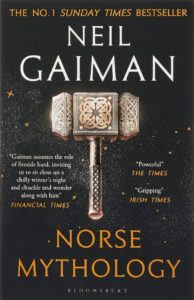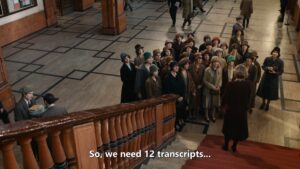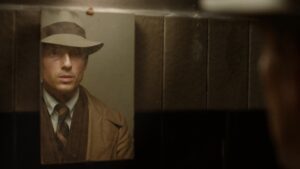The only character I like in this book is Bijaz the dwarf:
“His mouth rattles, but there’s no harm in him,” Otheym said, affection in his voice, the one good eye staring at Bijaz.
“Even a rattle can signal departure,” Bijaz said. “And so can tears. Let’s begone while there’s time to begin.”
And this is why I hate the rest of the characters:
“You’re not a despot!” she protested, tying her scarf. “Your laws are just.”
“Ahh, laws,” he said. He crossed to the window, pulled back the draperies as though he could look out. “What’s law? Control? Law filters chaos and what drips through? Serenity? Law—our highest ideal and our basest nature.
Don’t look too closely at the law. Do, and you’ll find the rationalized interpretations, the legal casuistry, the precedents of convenience. You’ll find the serenity, which is just another word for death.”
The strange twist is that while Paul learns about conspirators, a “stone burner” goes off. It’s a strange bomb, nuclear, powerful enough to burn to the planet’s core, but only blows a couple of houses. Still it burns Paul’s eyes. But wait, he isn’t blind, he can see in his mind! But maybe he’ll use it to fool his enemies? No, he immediatelly announces to everyone that he can see without eyes. So why add this in the first place?



